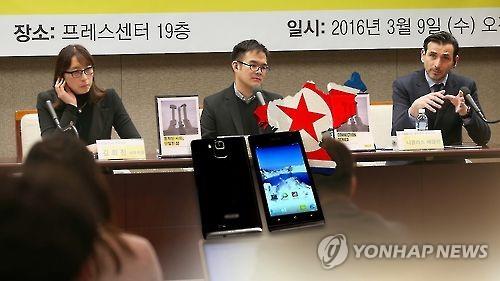North Korea stepped up restrictions on the use of Chinese mobile networks near the border last year in an apparent effort to control the flow of outside information, human rights organization Amnesty International has said.
In a recent report on North Korea's human rights situation, the group said the reclusive regime has strengthened efforts to trace the activities of smuggled mobile phones using Chinese networks and block the signals in the border areas over the past few years.
"Individuals interviewed by Amnesty International in 2018 reported that the situation has not improved despite the recent dialogue between officials from the two Koreas," it said. "Rather, communications through the Chinese mobile network have become even more difficult and risky in 2018."
Amnesty International said the surveillance makes it extremely difficult for families separated by the inter-Korean border to stay in contact.
The report was written for the U.N. Universal Periodic Review (UPR) of North Korea set for May this year.

Under the UPR program introduced in 2008, all 193 member states of the world body are subject to a review every 4 1/2 years.
Of the 268 recommendations made by U.N. member states during its second UPR in 2014, North Korea accepted 113, partially accepted four, took note of 58 and rejected 93, Amnesty International said.
North Korea has long been labeled as one of the world's worst human rights violators. The communist regime does not tolerate dissent and holds hundreds of thousands of people in political prison camps.
But the North has bristled at such criticism, calling it a U.S.-led attempt to undermine the regime.

